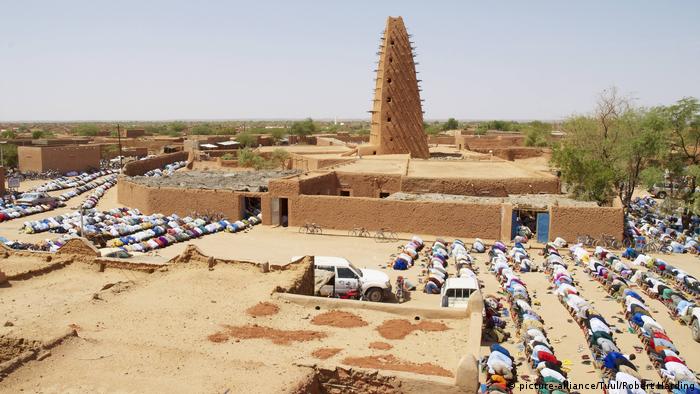

|
|
||||||
 Is Islamic extremism on the rise in Africa?
SOMALILANDERS:-
Over and over one reads the same disturbing reports: In Somalia, members of the al-Shabaab militia cut off the hands of two alleged thieves. In the capital Mogadishuthree solders were killed while trying to diffuse a bomb. Meanwhile in West Africa there are renewed clashes between the Nigerian Army and Boko Haram. Even though their overall strength has deteriorated over the last few years, Islamic extremist groups in Africacontinue to make headlines. "Groups that we call jihadists are actually backtracking, or have suffered heavy military defeats," Göttingen anthropologist Professor Roman Loimeier told DW. But they clearly still have the potential to carry out devastating attacks. And although violent Islamists make up only a fraction of the overall Muslim population in Africa, they represent broader radical trends in Islam. Approximately 43 percent of all Africans consider themselves Muslim and the continent has a reputation for religious tolerance. According to the Konrad Adenauer Foundation, "Islam in West Africa has evolved somewhat differently from the Middle East, having been influenced by pre-existing African traditions. It is characterized by tolerance and nonviolence." 
Many countries in Africa are well-known for their religious tolerance due to their diverse traditions Failed states ideal breeding grounds for extremism But has this reputation changed? Anthropologist Abdoulaye Sounaye from the Leibniz Center of Modern Oriental Studies (ZMO) says there has been a rise in radical Islamic groups in Africa since the 1990s. "Radical Islam has become even more important in political, cultural, social and even economic life," Sounaye told DW. However not everybody who adheres to conservative Islam is longing for power, or supports the use of violence. One of the main reasons for the rise of conservatism is the ongoing political and social crises in many African states. Following the fall of communism in Eastern Europe in the 1990s, the wave of democratization also reached many parts of Africa. Long-time rulers and military dictators eventually responded to ongoing pressure to establish proper democratic systems. But many of these new democracies suffered under rampant corruption, mismanagement and confidence in the state system. This in turn created a space for more radial religious thought. "Salafismis a revolutionary idea which can be attractive to certain social groups like young people or women who reject the state," says Sounaye. And in some cases where the state failed to protect and support its people, these groups offered help. Sounaye refers in particular to the so-called "prosperity gospel" of Salafist groups. "They have, for example, raised money for all sorts of projects: schools, colleges, hospitals and so on. These social services have provided Salafi organizations in the region with a platform to become popular." Their popularity is also made possible thanks to generous donations from rich Islamic states like Saudi Arabia. The kingdom follows a strict interpretation of the Koran known as Wahhabism. Such donations allow conservative African Islamic groups to finance mosques, charities and even spread their message using the media sector. A diverse religion However, experts like Loimeier point out that Islam in Africa is not necessarily seeing a rising trend towards conservatism, as a number of other more progressive movements begin to emerge. "Muslim societies and Islam in sub-Saharan Africa are becoming more diverse," he says, "there is a wide range of reform movements among Sufis, which focus on making their faith more transparent and encouraging women to go to school." But the Loimeier also warnedof the potential for Islamic extremist groups to emerge alongside Boko Haram, Ansar Dine or al-Shabaab – especially in authoritarian states. "In these countries, Islam has become a symbol of rebellion which is on the side of those who have been oppressed or unjustly treated – an ideal foundation for the beginning of a radical movement." He says Ethiopia may be one to watch."The regime has made a few regrettable mistakes in the last few years. Radical groups are ready to emerge and could be given significant support by the population if the situation does not improve." DW RECOMMENDSLeave a comment |
|
|||||
| Nagala soo xiriir: [email protected] |
| Copyright © 2009 - 2026 Somalilanders.com All Rights Reserved. |
Is Islamic extremism on the rise in Africa?
SOMALILANDERS:-